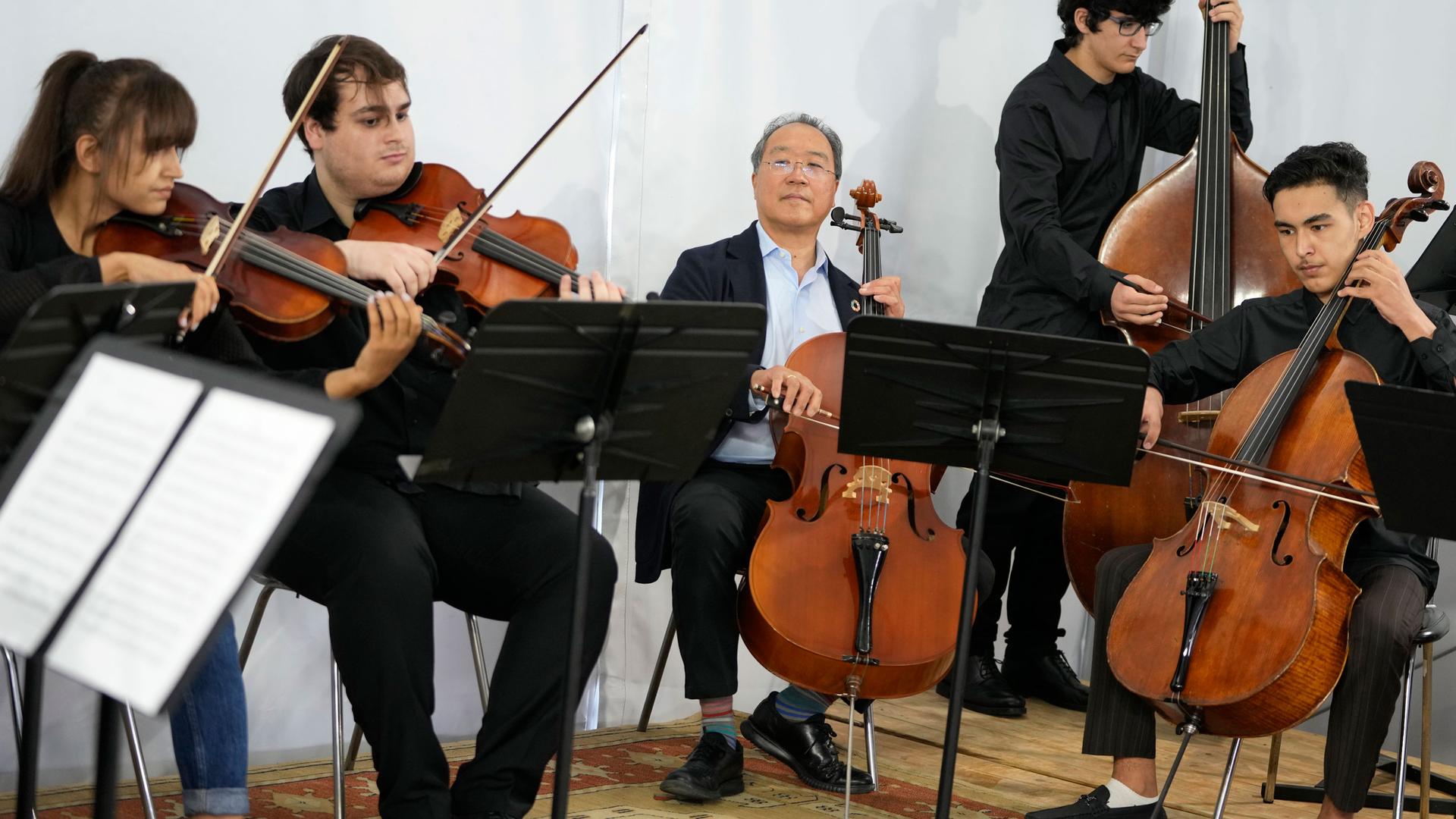When 24-year-old sitar player Huma Rahimi fled from Afghanistan last year, she said she gave her instrument to a man to hide for her before she left.
In Afghanistan, under Taliban leadership, playing music in public is forbidden and harsh consequences mean musicians’ lives are at risk.
“When I came from Afghanistan, I didn’t bring my sitar, because if the Taliban knows that we are musicians, it will be dangerous for all of us. It was difficult.”
“When I came from Afghanistan, I didn’t bring my sitar, because if the Taliban knows that we are musicians, it will be dangerous for all of us. It was difficult,” Rahimi said.
Last December, Portugal welcomed Rahimi among nearly 300 Afghan musicians and some of their relatives affiliated with the Afghanistan National Institute of Music (ANIM), Kabul’s only music academy.
After a few months of limbo in Qatar, the group landed in Lisbon with high hopes for their futures as working musicians. Yet, six months later, their future remains unclear.
“We are here to have a good life. … We came with an important mission, to preserve Afghan music for the future.”
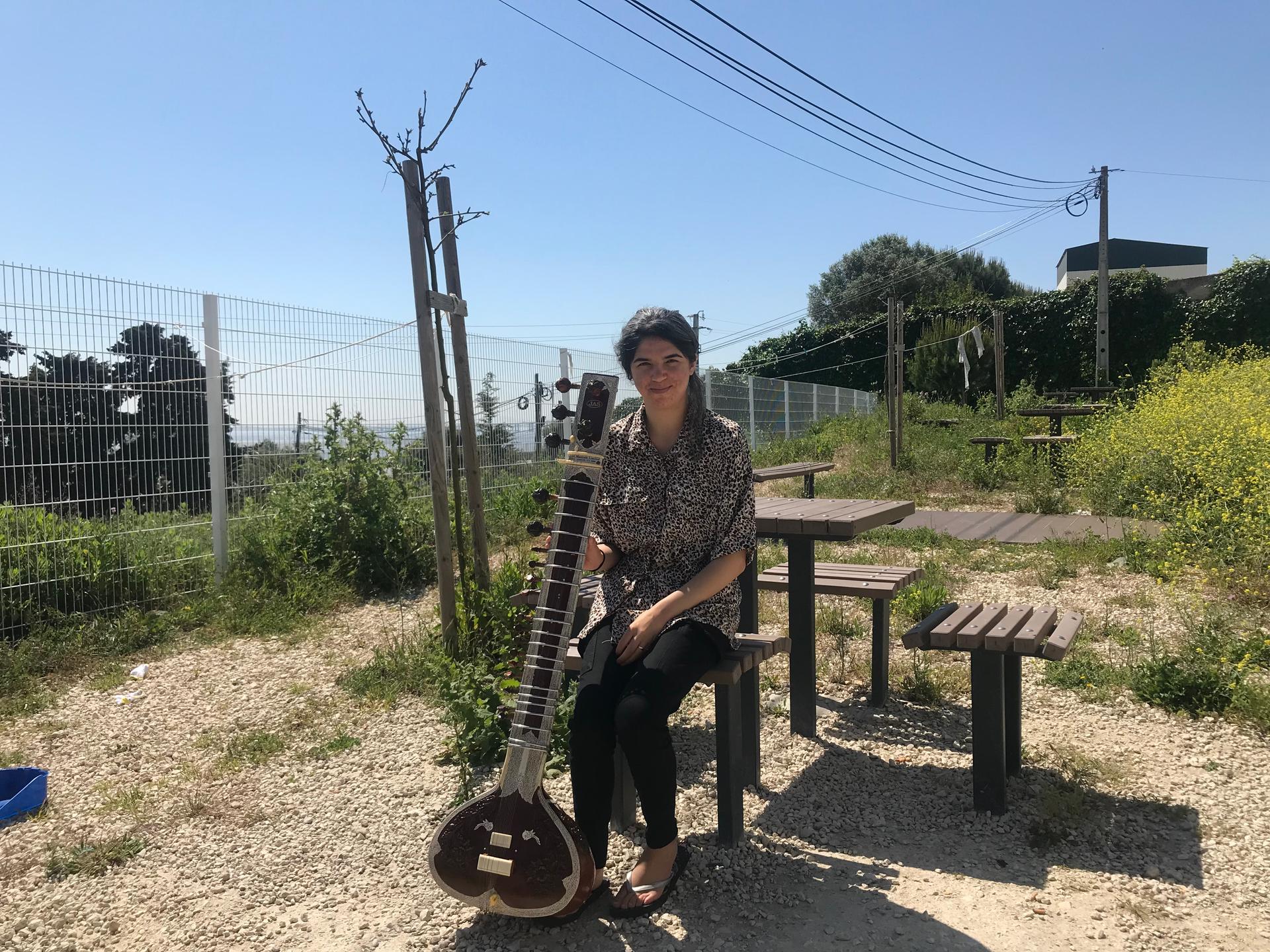
“We are here to have a good life,” said Ahmad Naser Sarmast, ANIM’s founder and director. “We came with an important mission, to preserve Afghan music for the future.”
Related: Afghan women say Taliban’s new rules aim to make them ‘disappear from public life’

Many of the musicians are struggling to adjust to their new lives.
Rahimi, a member of ANIM’s Zohra orchestra, Afghanistan’s first all-female music ensemble, currently stays at a refugee center in an industrial area just outside Lisbon, called the Centro de Acolhimento para Refugiados, run by a nongovernmental organization in partnership with the government.
She said she was glad when Sarmast, ANIM’s director, found her a sitar to borrow — even if its sound wasn’t as good as the one she had in Kabul.
She now uses the sitar to teach students staying at another refugee center in the area.
“It’s difficult to come somewhere that you don’t know the language, the culture, and you don’t have anything here. … But I’m glad that I am safe here and I’m trying to be positive and work hard to see my future.”
“It’s difficult to come somewhere that you don’t know the language, the culture, and you don’t have anything here,” she said. “But I’m glad that I am safe here and I’m trying to be positive and work hard to see my future.”
She hopes that ANIM will reopen in Portugal and that she’ll be able to continue teaching the sitar in a school, like she did back in Kabul.
Related: Amid chaos, young Afghan refugees find something familiar in St. Louis — soccer
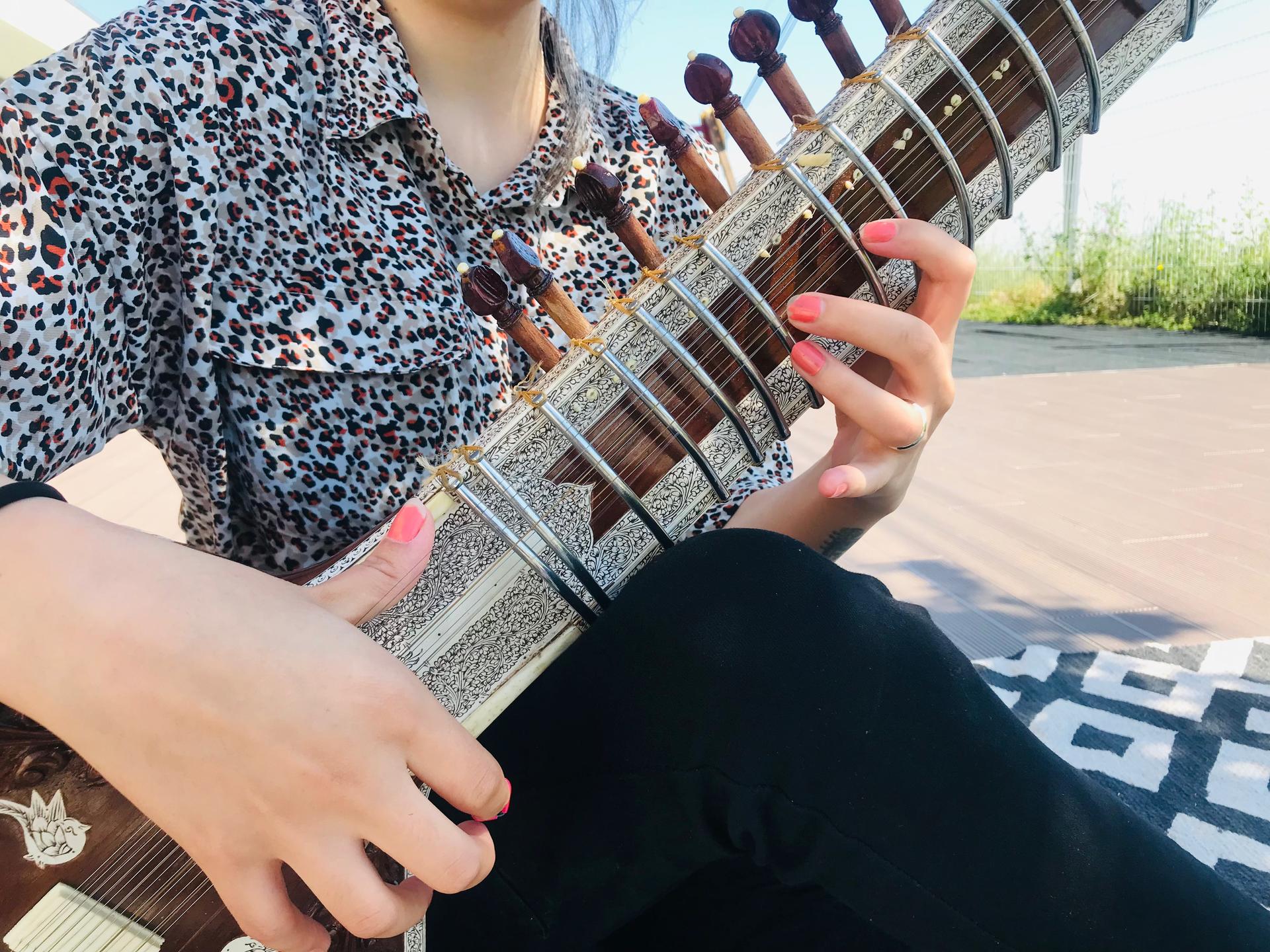
The group has already organized a few concerts and established a partnership with the music conservatory in Lisbon.
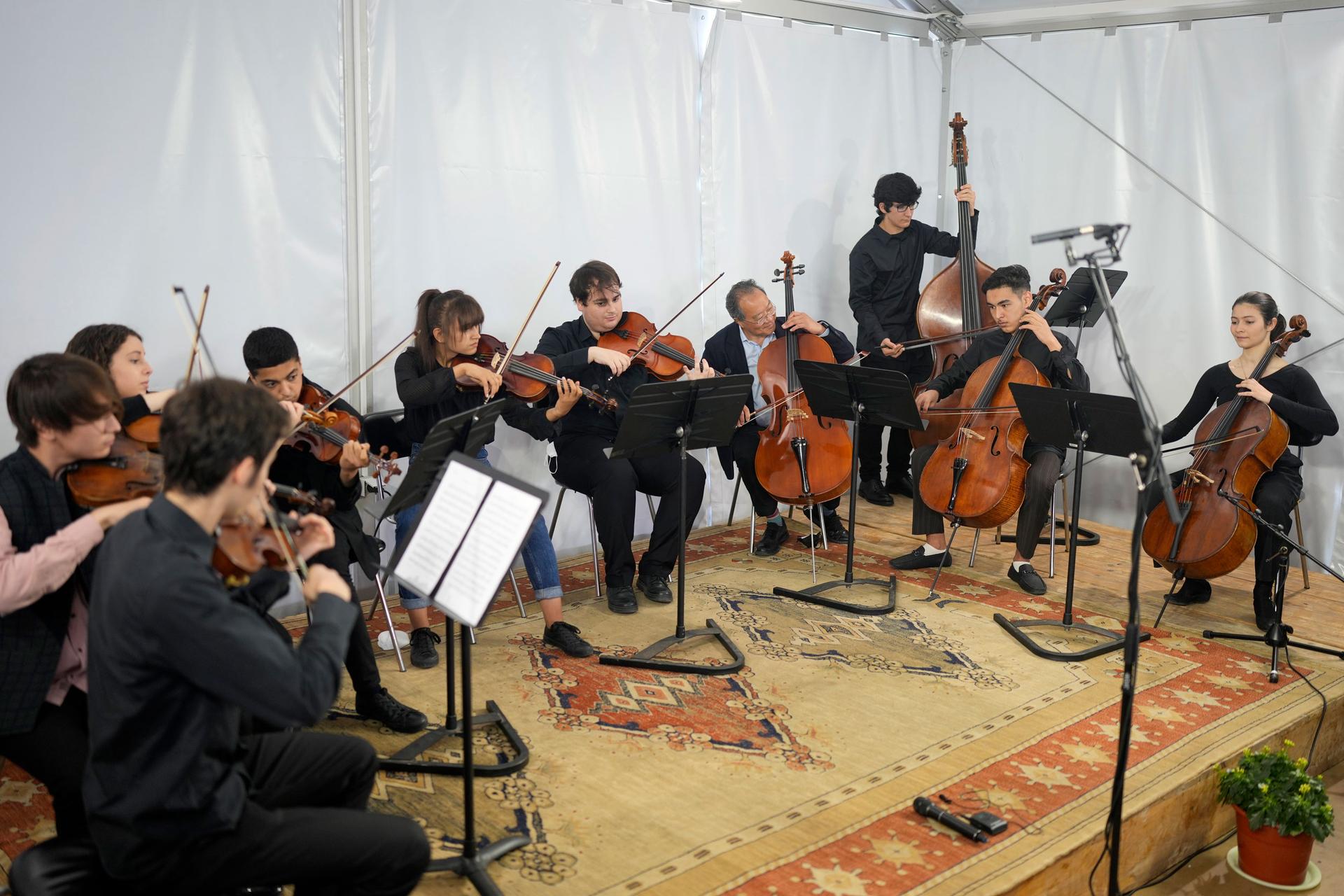
Rahimi thinks about the stark differences between her life now and her rural upbringing in Afghanistan, where it was difficult for girls to study — let alone to play music. “I believe in myself,” she said.
Related: As Canada prioritizes expedited arrivals for Ukrainians, at-risk Afghans remain trapped abroad
Other refugees are finding it harder to stay positive.
Jamal Hashemi, a 30-year-old pianist, composer and ANIM member, said he thinks incessantly about the family he had to leave behind in Kabul.
“Because of my [musical] activities, my family … they are in danger. I am afraid to call my wife, really. When I call, they start crying … and I say, ‘oh, my God, what should I do?’”
“Because of my [musical] activities, my family … they are in danger. I am afraid to call my wife, really. When I call, they start crying … and I say, ‘oh, my God, what should I do?’”
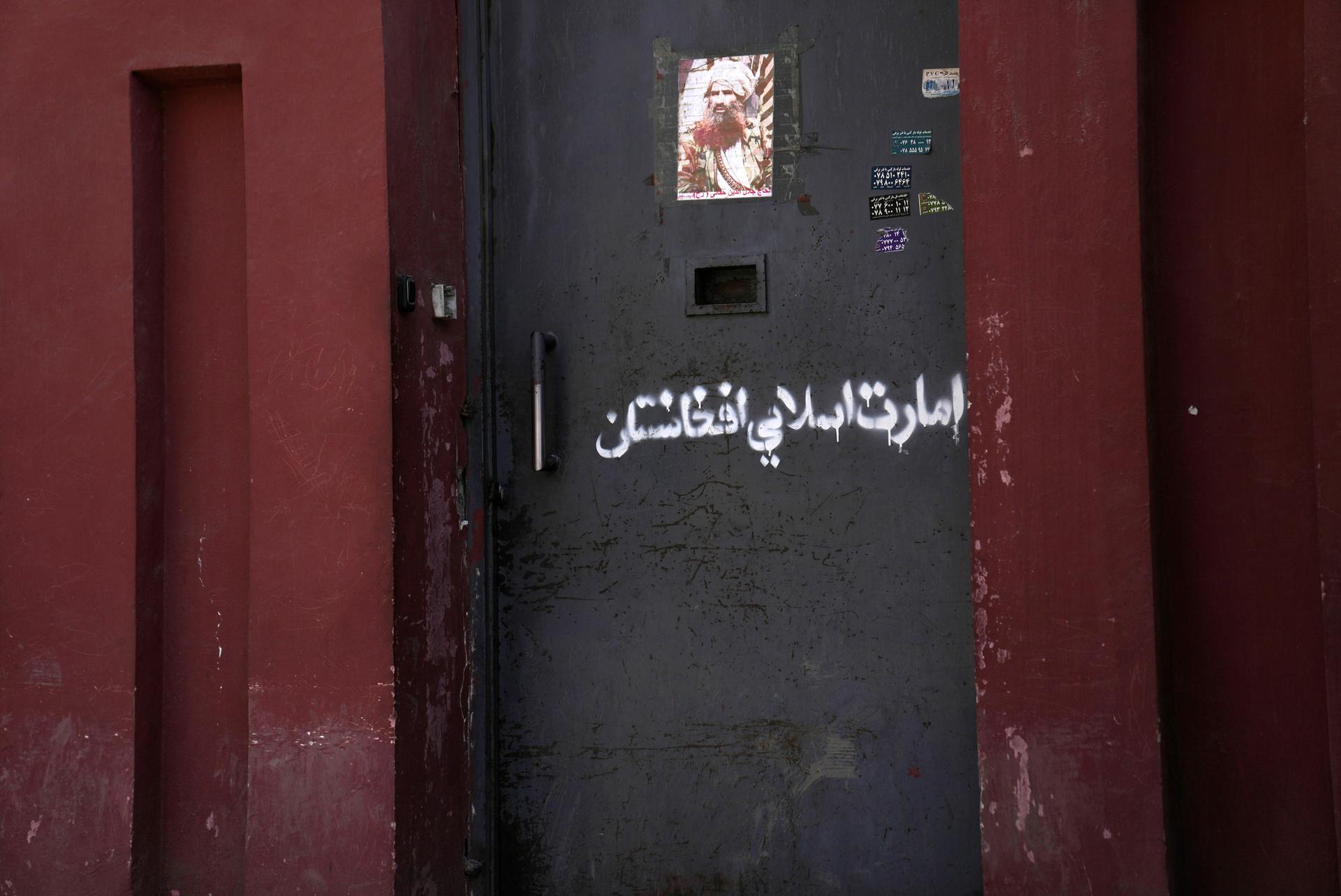
Hashemi and the other musicians were granted asylum, but they still need Portuguese residency papers to bring their families to Portugal. It could take months before they receive those documents.
While waiting, Hashemi tries to help his relatives by sending them most of the $160 he receives from the refugee center intended for food, telephone services and transportation.
Hashemi rarely leaves the center to try to save as much money as possible for his family back in Afghanistan.
“I’m just thinking about my future. What should I do? What should I do for my family? How can I earn money? I can’t see the beauty of Portugal now because I don’t care,” Hashemi said.
Related: 6 months after evacuation, thousands of Afghan families are waiting to reunite
He did take one trip with his Portuguese teacher to Nazare, a seaside village north of Lisbon. It was the first time he saw the ocean, he said, but it was a completely numbing experience.
Hashemi does find a little hope through connections with local musicians who reached out to ANIM members and invited them to play music at popular music venues, such as Tejo Bar, in Lisbon’s historic Alfama neighborhood.
Related: ‘We have no future’: Afghan women protest Taliban restrictions
Meeting musicians from all over the world inspired Hashemi to imagine opening an artists’ association in Portugal, similar to the one he founded in Kabul, known as azhang, a Dari term that refers to the power of the collective.
“We have to explain the meaning. For example, we have water, a lake, and one drop of water comes to this lake. And you can see this wave becoming bigger and bigger and bigger. This process, we call it azhang,” he said.
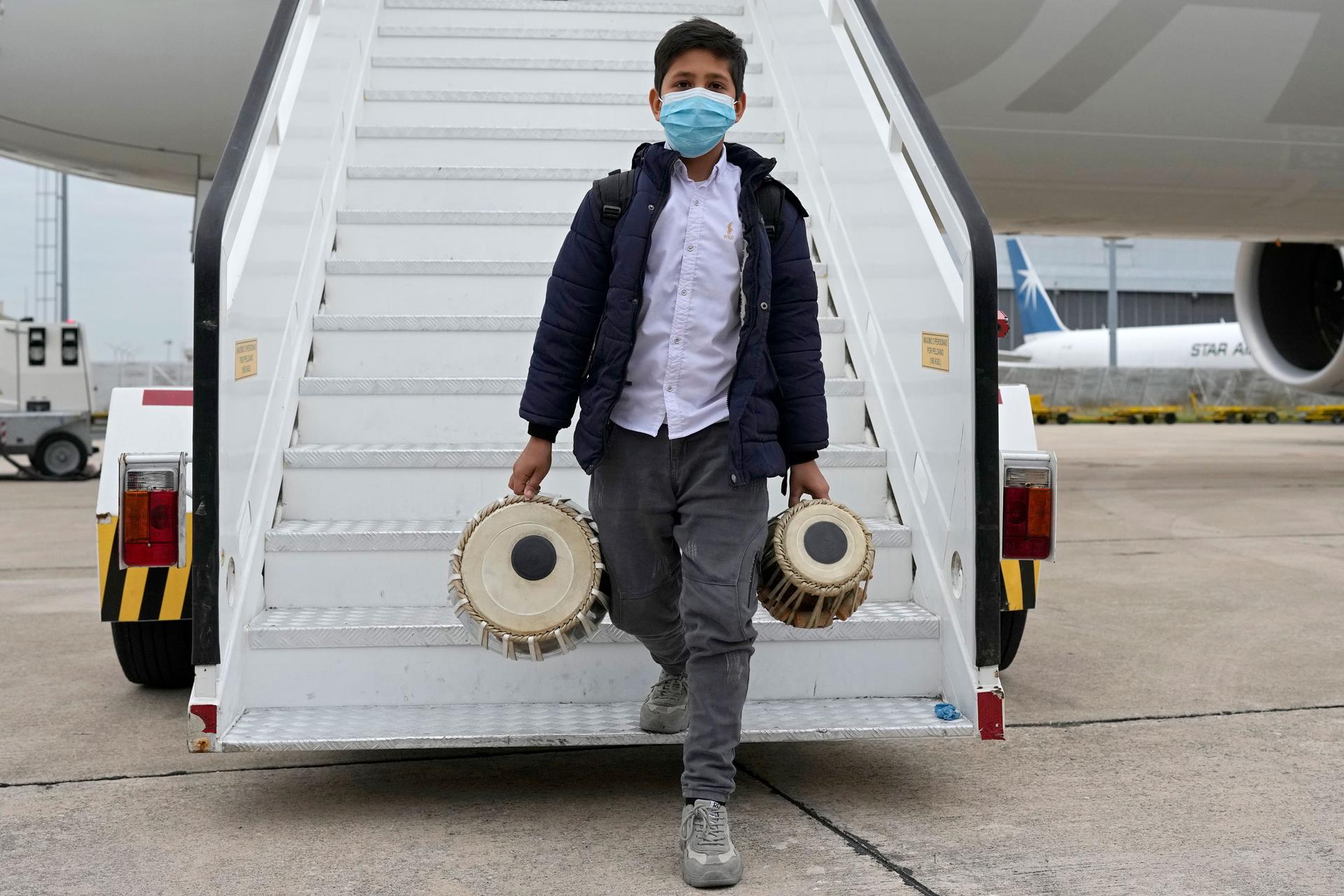
One local musician in Lisbon gifted Hashemi a piano, for which he said he feels extremely grateful.
His own piano remains in Kabul, hidden in the back of his parents’ house under a mountain of bags filled with garbage.
The new one sits in the corner of his room in Lisbon, a small space he shares with a refugee from another country.
While his roommate is out, Hashemi plays the piano.
It’s the one thing that reminds him of who he is and — even here — still makes him feel at home.
